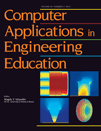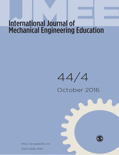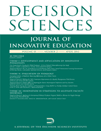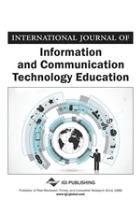
COMPUTER APPLICATIONS IN ENGINEERING EDUCATION
Scope & Guideline
Catalyzing educational advancements with innovative computer applications.
Introduction
Aims and Scopes
- Integration of Technology in Education:
The journal explores the use of advanced technologies such as virtual reality, augmented reality, and artificial intelligence to enhance learning experiences and improve educational outcomes in engineering education. - Innovative Teaching Strategies:
It emphasizes innovative teaching methodologies like gamification, project-based learning, and flipped classrooms to foster engagement and improve students' computational thinking skills. - Assessment and Evaluation Methods:
The journal focuses on developing and evaluating new assessment tools and methodologies, including automated grading systems and learning analytics, to better understand and enhance student performance. - Interdisciplinary Approaches:
It promotes interdisciplinary education by integrating concepts from various fields such as computing, robotics, and STEM education to prepare students for complex engineering challenges. - Research and Development in Educational Tools:
The journal highlights research on the development of new educational tools and platforms, such as simulation software and online learning environments, to facilitate engineering education.
Trending and Emerging
- Artificial Intelligence and Machine Learning in Education:
There is a growing trend in leveraging AI and machine learning technologies to personalize learning experiences and enhance educational outcomes, with several recent publications exploring their applications. - Virtual and Augmented Reality Applications:
The use of virtual and augmented reality in engineering education is on the rise, as these technologies are recognized for their potential to create immersive learning environments and improve conceptual understanding. - Gamification and Game-Based Learning:
Gamification strategies are increasingly being integrated into engineering curricula to enhance student motivation and engagement, with a notable increase in studies focused on this approach. - Learning Analytics and Educational Data Mining:
The application of learning analytics to assess student performance and engagement is gaining traction, with research exploring how data can inform teaching practices and improve educational outcomes. - Interdisciplinary and Collaborative Learning:
There is a marked increase in publications that emphasize interdisciplinary learning and collaboration among students from different engineering disciplines, fostering a holistic educational experience.
Declining or Waning
- Traditional Lecture-Based Instruction:
There is a noticeable decline in publications focused on traditional lecture-based teaching methods, as the journal increasingly advocates for interactive and student-centered learning approaches. - Basic Programming Education:
Papers specifically addressing introductory programming techniques without the integration of innovative methods or technologies are becoming less frequent, reflecting a shift towards more advanced and engaging programming education. - Static Assessment Methods:
The focus on static assessment methods that do not incorporate technology or adaptive learning strategies is diminishing, as the journal embraces dynamic and formative assessment techniques. - Limited Use of Conventional Tools:
There has been a reduction in the exploration of conventional educational tools, with a growing emphasis on digital and interactive platforms that enhance student engagement and learning outcomes.
Similar Journals

International Journal of Instruction
Transforming education with high-quality, accessible research.International Journal of Instruction is a distinguished peer-reviewed journal dedicated to advancing the field of education through high-quality research and innovative instructional practices. Published by GATE Association for Teaching & Education in Switzerland, this open-access journal has been a beacon of knowledge since its inception in 2008, ensuring that impactful educational research is freely accessible to scholars, educators, and practitioners worldwide. With an impressive Q2 ranking in Education and a notable position in the 80th percentile within its category in Scopus, the journal showcases cutting-edge studies and discussions that reflect current trends and methodologies in teaching and learning. The scope of the journal includes a wide array of topics, ranging from instructional strategies to curriculum development, making it a vital resource for anyone engaged in the dynamic landscape of education. Explore the International Journal of Instruction today to contribute to and benefit from the collective wisdom of the global educational community.

Frontiers in Education
Empowering Educators Through Research Excellence.Frontiers in Education is a distinguished open-access journal published by FRONTIERS MEDIA SA, dedicated to the advancement of educational research and practice. Launched in 2016, this journal has quickly established itself within the field, attaining a Q2 ranking in Education for 2023, positioning it among the top-tier publications in the field. With a Scopus rank of #580 out of 1543, it lies in the 62nd percentile, highlighting its significance and reach within the scholarly community. Based in Lausanne, Switzerland, Frontiers in Education aims to provide a collaborative platform for educators, researchers, and practitioners to disseminate high-quality research findings and innovative educational practices. As an open-access publication, it not only champions the principles of accessibility but also enhances the visibility and impact of its published work. This journal is instrumental in shaping the future of education through rigorous research, critical analysis, and the promotion of best practices, making it an essential resource for anyone invested in the field.

International Journal of Mechanical Engineering Education
Driving Innovation in Mechanical Engineering LearningThe International Journal of Mechanical Engineering Education, published by SAGE Publications Inc, serves as a premier platform dedicated to advancing the field of engineering education, with a specific focus on mechanical engineering. With a history dating back to 1981, this journal has established itself as a vital resource for researchers, educators, and industry professionals alike, offering insights and scholarly articles that foster innovation and improve pedagogical approaches within the discipline. The journal is currently indexed in Scopus, ranking #542 in Education and #311 in Mechanical Engineering, reflecting its significant contribution to both academic and engineering communities. Although it does not have open access options, the quality and depth of research disseminated through its pages are undeniable, making it an essential read for anyone involved in engineering education. With a Q3 categorization in both relevant fields as of 2023, the journal continually strives to enhance the learning experience and methodologies in mechanical engineering education, paving the way for a future generation of skilled engineers.

International Journal of Education and Information Technologies
Unlocking Potential through Research and Innovation in EducationWelcome to the International Journal of Education and Information Technologies, a leading academic platform published by NORTH ATLANTIC UNIV UNION-NAUN. With an emphasis on the integration of education and information technology, this journal aims to foster innovative research and discussions that enhance pedagogical practices and technological advancements in educational contexts. Although currently an open access journal, it provides unrestricted access to emerging studies that are crucial for educators, researchers, and professionals aiming to stay at the forefront of education technology. While specific metrics such as H-index and Scopus ranks are yet to be defined, its ISSN 2074-1316 signifies its credibility and commitment to quality scholarship. This journal serves as a vital resource for those passionate about bridging the gap between technology and education, encouraging impactful research that shapes the future of learning environments.

Eurasian Journal of Educational Research
Empowering educators through innovative research.The Eurasian Journal of Educational Research, published by ANI YAYINCILIK, is a distinguished platform dedicated to advancing the field of education since its inception in 2008. Operating under a robust commitment to open access principles, this journal facilitates the dissemination of high-quality research and innovative practices across diverse educational domains. With an ISSN of 1302-597X and an E-ISSN of 2528-8911, it serves as a significant resource for educators, researchers, and policymakers within the academic community. Holding a Q3 rating in Education for the year 2023, and ranked 792 out of 1543 within the Scopus database, the journal exemplifies its commitment to enhancing educational outcomes across Eurasia. The Eurasian Journal of Educational Research aims to publish original research, systematic reviews, and insightful perspectives that contribute to the ongoing discourse in educational research, policy, and practice. Based in Ankara, Turkey, it also emphasizes the importance of regional studies and their implications on global educational trends, thus enriching the academic landscape with localized knowledge while fostering international collaborative networks.

International Journal of Technology in Education
Fostering Knowledge and Innovation in Educational TechnologyThe International Journal of Technology in Education, published by the International Society for Technology Education & Science (ISTES), serves as a vital platform for researchers, educators, and practitioners devoted to the intersection of technology and educational practices. With an E-ISSN of 2689-2758, this journal aims to showcase innovative research, case studies, and theoretical contributions that explore how emerging technologies can enhance teaching and learning. Although specific metrics like impact factor and HIndex are currently unavailable, the journal is committed to rigorous peer review and high academic standards, ensuring that all published work contributes meaningfully to the evolving landscape of educational technology. As an open-access journal, it strives to make research widely available, fostering collaboration and knowledge sharing among its audience. Whether you are a researcher exploring new horizons or a professional seeking practical applications of technology in education, the International Journal of Technology in Education is an indispensable resource.

Decision Sciences-Journal of Innovative Education
Elevating educational practices with insightful research.Decision Sciences - Journal of Innovative Education is a prestigious academic journal published by WILEY, focusing on the intersecting fields of decision sciences, education, and management. With an ISSN of 1540-4595 and an E-ISSN of 1540-4609, this journal offers valuable insights and research findings aimed at fostering innovative educational practices and decision-making processes. As of 2023, it boasts an impressive Q2 ranking in several categories, including Business, Management and Accounting, Decision Sciences, and Education. This positions it within the top tier of journals in its field, reflecting its commitment to high-quality scholarship. Researchers and educators benefit from its extensive coverage of contemporary topics and methodologies, making it a vital resource for those seeking to enhance their understanding and application of innovative strategies in education. Although it does not currently offer open access, the journal remains accessible via institutional subscriptions, ensuring that its impactful research is readily available to a broad audience. The journal's scope spans from 2011 to 2024, allowing for a comprehensive exploration of evolving trends in decision sciences and education.

International Journal of Information and Communication Technology Education
Fostering collaboration in the realm of ICT education.International Journal of Information and Communication Technology Education (ISSN: 1550-1876, E-ISSN: 1550-1337), published by IGI Global, stands at the forefront of educational research, focusing on innovative uses of information and communication technologies in the educational landscape. With an impressive impact factor and consistently high rankings—the journal is positioned in the Q3 category for both Computer Science Applications and Education in the 2023 evaluations—this journal serves as a vital platform for scholarly contributions that aim to advance teaching methodologies and enhance learning experiences. Spanning from 2005 to 2024, it explores diverse topics in e-learning and technology-enhanced education, making it an essential resource for researchers, professionals, and students passionate about the intersection of technology and pedagogy. Though specifically not an open-access journal, the invaluable insights it offers foster knowledge dissemination and innovation in the field. Located in the United States, at 701 E Chocolate Ave, Hershey, PA, the journal remains committed to fostering a collaborative and transformative approach to learning in today's digitally-driven society.

RIED-Revista Iberoamericana de Educacion a Distancia
Connecting Educators and Researchers WorldwideRIED-Revista Iberoamericana de Educacion a Distancia is a premier academic journal dedicated to the dynamic field of distance education, published by the ASOCIACION IBEROAMERICANA EDUCACION SUPERIOR & DISTANCIA - AIESAD. Established in 1998 as an Open Access journal, it provides a valuable platform for researchers, educators, and practitioners to disseminate and access cutting-edge research and innovative practices in distance learning. With its ISSN 1138-2783 and E-ISSN 1390-3306, RIED ranks within the top 2nd Quartile (Q2) in both Computer Science Applications and Education as of 2023, showcasing its significant impact and relevance in academia. Positioned in Spain, the journal not only serves the Ibero-American educational community but also contributes to the global discourse on online education methodologies and technologies. With an impressive Scopus ranking in the 92nd percentile for Social Sciences (Education) and 77th percentile for Computer Science (Computer Science Applications), RIED is essential for those seeking to advance their understanding and expertise in the realm of distance education.

Etic net-Revista Cientifica Electronica de Educacion y Comunicacion en la Sociedad del Conocimiento
Bridging Theory and Practice in Education and CommunicationEtic net-Revista Cientifica Electronica de Educacion y Comunicacion en la Sociedad del Conocimiento, published by UNIV GRANADA, is a pioneering open-access journal dedicated to the exploration and dissemination of research in the fields of education and communication within the context of knowledge society. Since its inception in 2002, this journal has provided a platform for scholars, researchers, and practitioners to share innovative ideas and empirical studies, fostering critical dialogue and collaboration in the rapidly evolving landscape of digital education and communication. With its ISSN 1695-324X, Etic net aims to bridge theoretical frameworks and practical applications, contributing significantly to the scholarly discourse and practices that shape contemporary educational experiences globally. Through its commitment to open access, the journal ensures that high-quality research is freely available to all, promoting inclusivity and accessibility in academic publishing. We invite you to explore the latest findings and contribute to shaping the future of education and communication by engaging with this essential resource.